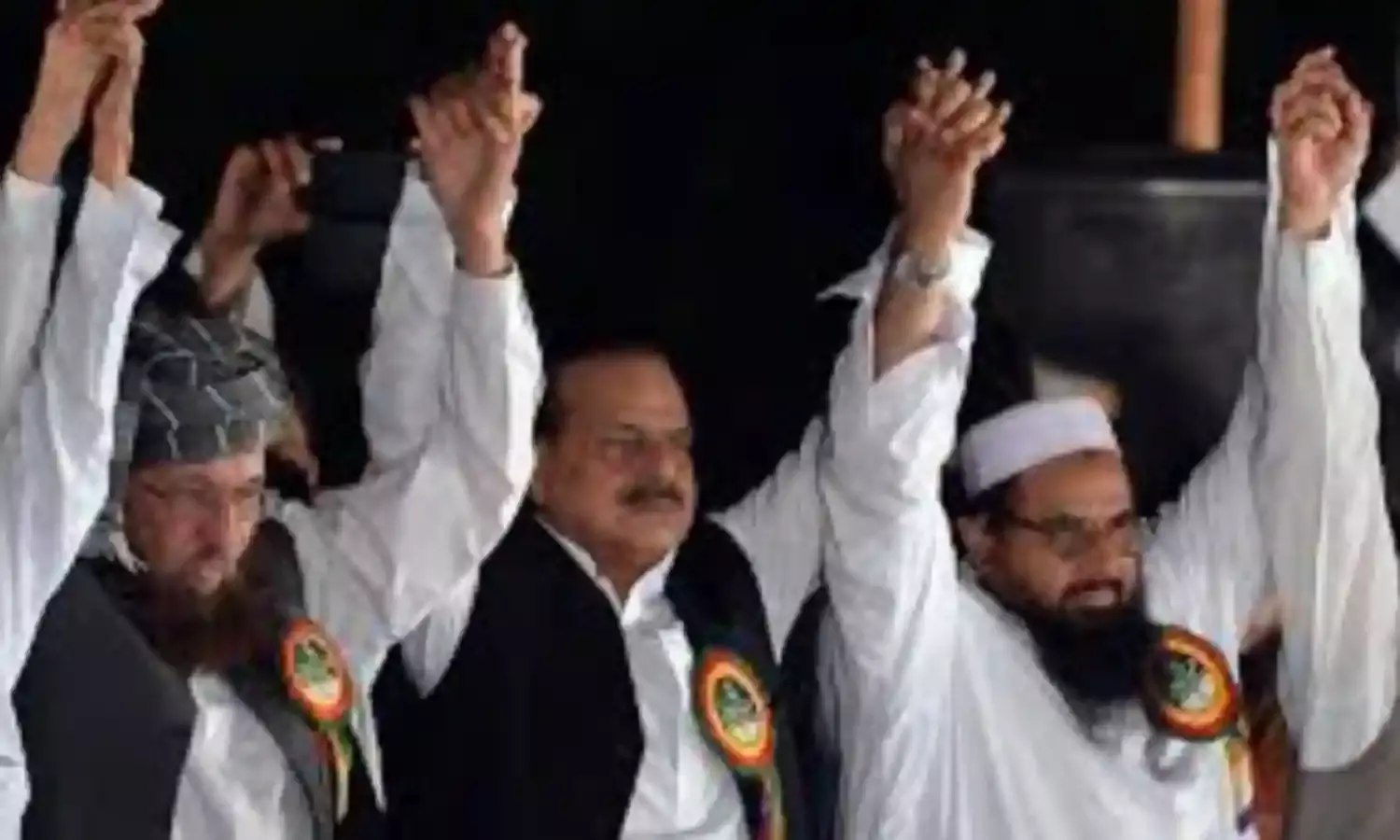Release of UN Designated Terrorist Hafiz Saeed Will Further Vitiate Indo-Pak Ties
Hafiz Saeed with former Pakistan ISI chief Hamid Gul (photograph)

COLOMBO: The release of the UN, US and India-designated terrorist Hafiz Saeed by a Pakistani High Court on Wednesday, will adversely affect the global fight against cross-border terrorism and further vitiate India-Pakistan relations.
Given the backing given by the Pakistan armed forces to Saeed’s Jamaat-ud-Dawa (Jud), Lashkar-e-Taiba (LeT) and Tehreek Azadi Jammu and Kashmir, and the lack of will displayed by the civilian government to nail him in court with evidence provided by India, the court’s verdict is a shot in the arm for the Pakistani military waiting in the wings to enhance its power in the country and step up confrontation with India.
In the context of the political uncertainties created by the ouster of Nawaz Sharif from the Prime Minister-ship, and the possibility of Gen.Parvez Musharraf’s coming back to politics with a pro-military rule agenda, chances of the military enhancing its power have brightened.
And this will be a setback to forces in Pakistan (including the current civilian government) which have been yearning for a détente with India to promote trade and social and cultural exchanges, if not a settlement of the Kashmir issue. .
Saeed was released by the Lahore High Court “for lack of evidence”. The Punjab government which wanted his house arrest to be extended had failed to give “concrete evidence” of his involvement in terrorist activities, the court said.
But the UN, the US and India are convinced that Saeed’s outfits were involved in attacks in Afghanistan and India. The US had designated Saeed and even put a prize of US$ 10 million on his head.
India has been wanting him to stand trial in the Mumbai serial blasts case as the principal suspect. In the blasts on November 26, 2008, 164 persons were killed and 308 wounded. Ajmal Kasab, the only attacker to be caught, disclosed that the squad came from Pakistan and was led by the LeT.
Given the international odium it had acquired because of the blasts, the LeT began masquerading as a social welfare organization called Jaamat-ud-Dawa (JuD) with Saeed continuing as the leader. Since January 2017, the organization has been working under a new name – Tehreek Azadi Jammu and Kashmir (TAJK).
Pakistan initially denied any involvement in the blasts, but under pressure from the West and India (which gave evidence of the involvement of LeT), Saeed was put under arrest in September 2009. But he was cleared of all charges a month later. However, come January 2017, he was placed under house arrest again.
Pakistan pleaded inability to proceed any further in the case on the grounds that India had failed to produce evidence that could be used in courts. But India maintained that it had given evidence which could be used in courts.
In February this year, the then spokesman of the Indian External Affairs Ministry Vikas Swarup said: “ The entire conspiracy in the Mumbai terror attack case was hatched in Pakistan. All the terrorists came from Pakistan. All the planning was done in Pakistan. All the support was rendered from Pakistan. So all the evidence to implicate the mastermind of the Mumbai terror attack is available in Pakistan. So the so-called concrete evidence that the Pakistani authorities are seeking is already available in Pakistan. All they need to find is the requisite political will.”
With Pakistan releasing Saeed and China refusing to back India’s bid to get the UN to designate Jaish-e-Mohammed chief Masood Azhar as a terrorist, India’s fight against Pakistan-inspired terrorism has received a severe setback.
The release of Saeed will vitiate India-Pakistan relations further and give a fillip to the on-going insurgency in Kashmir, which is evident from Saeed’s statement to the media on Wednesday.
Expressing happiness over his release, Saeed said: “This is the victory of Pakistan’s independence and, God willing, Kashmir too will become independent because I’m fighting the case of Kashmir.”
“It is because of Kashmir that India is after me, but all its efforts have been in vain. I pray to God to help me and members of JuD that we can play a strong role for Pakistan’s independence and Kashmir’s independence.”



